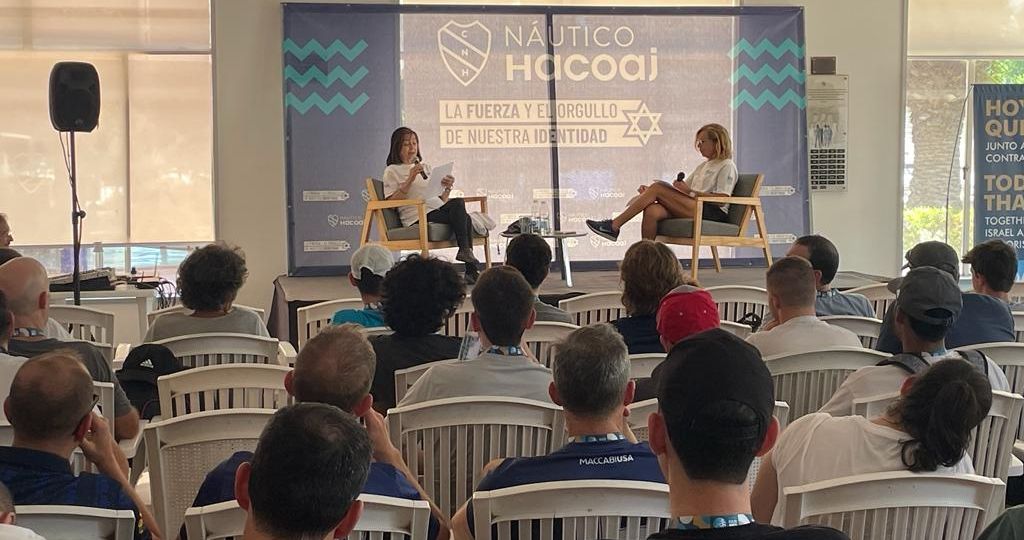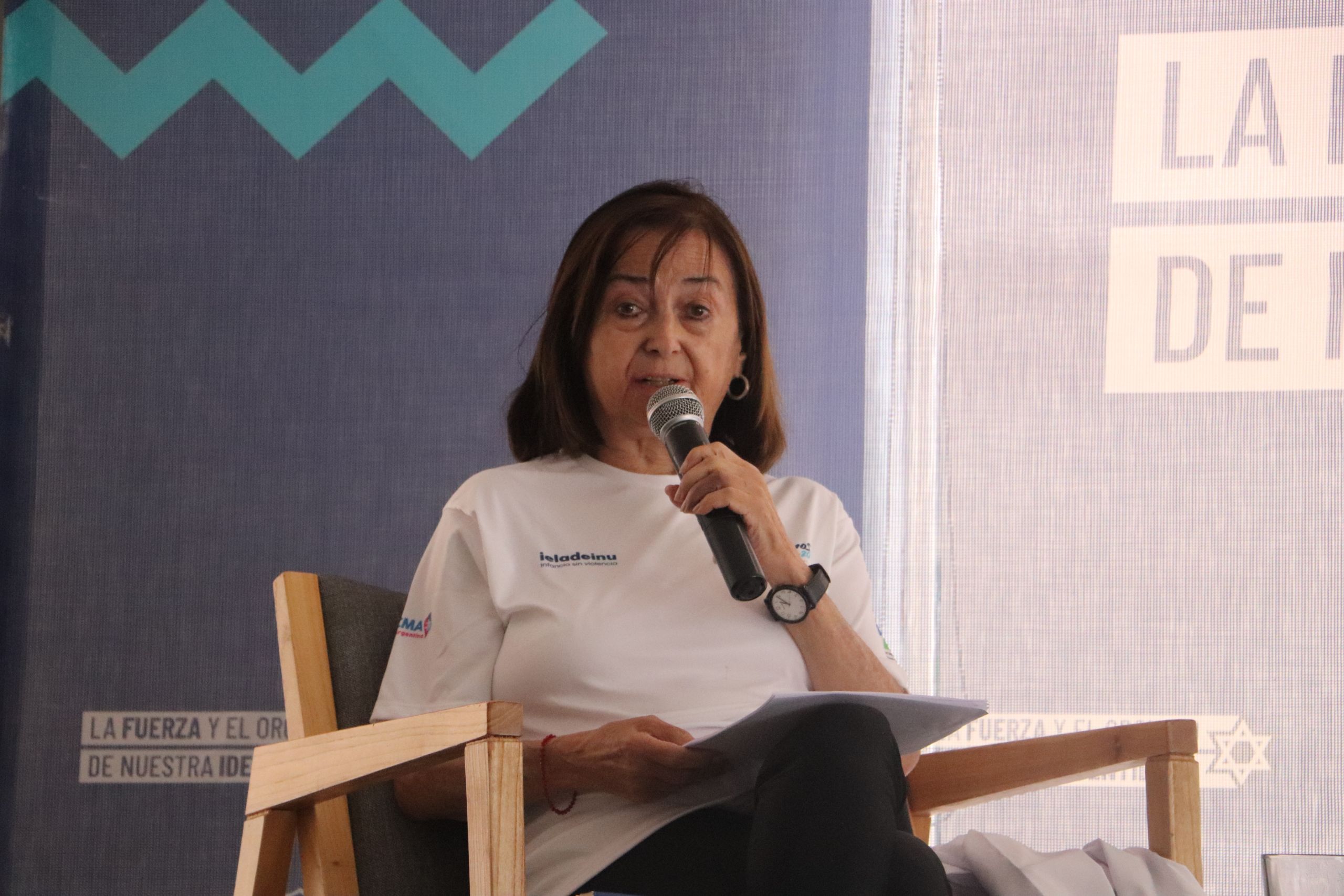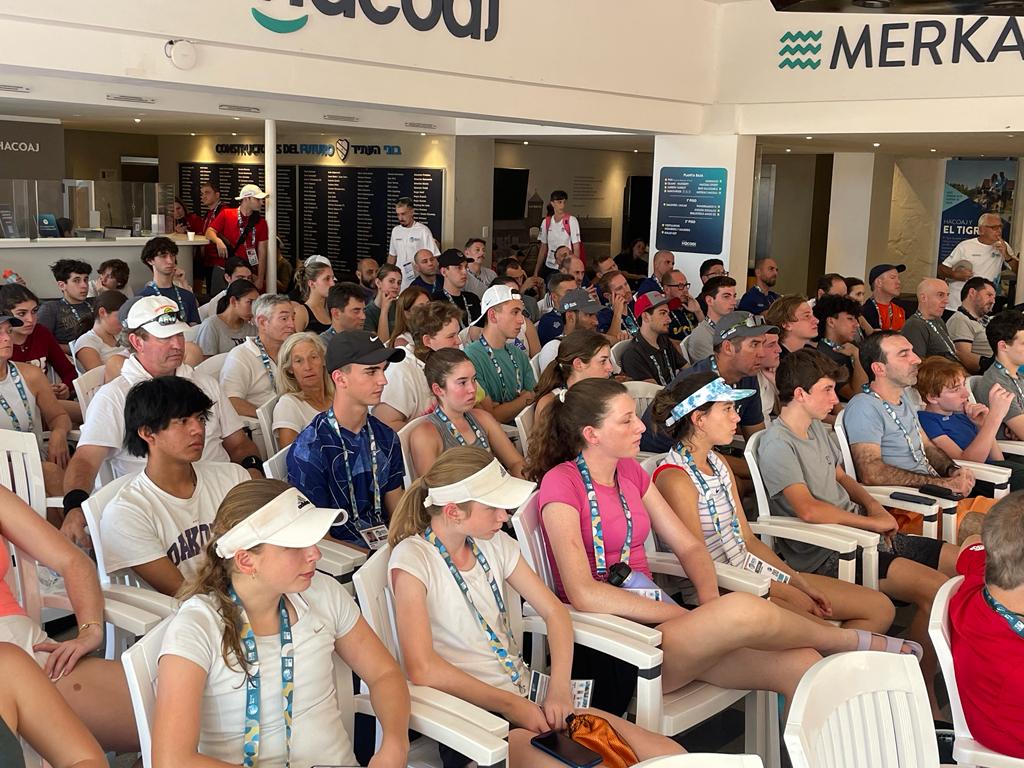
Written by Charlie Bendheim
July 18, 1994, started out like a regular Monday. Anita Weinstein walked up to her second-floor office at the Asociación Mutual Israelita Argentina (AMIA) in the heart of Buenos Aires. At 9:53 a.m., she went to the rear of the building to see a colleague.
Just then, she heard a loud explosion. “Materials started to fall from the roof,” she said. “An intense darkness covered us.” There was panic and shouting, glass breaking. A suicide bomber had crashed a car into the lobby. Anita went back to get her assistant, Mirta. She was told to stop. The floor was gone in the front of the building.
 (Photo credit: Dannie HawkettCaption info: Anita Weinstein speaks Hacaoj in Buenos Aires)
(Photo credit: Dannie HawkettCaption info: Anita Weinstein speaks Hacaoj in Buenos Aires)
“Your brain gets paralyzed,” she recalled. “You cannot grasp what is real.”
The blast killed 85 people and injured more than 300.
When her mother, a Holocaust survivor, heard the news, she hugged Weinstein and said, “[I] never thought [my] daughter would be the survivor of an anti-Jewish attack.”
Many of Weinstein’s colleagues decided not to return to their jobs. Weinstein did the opposite.
“The day after – and all of the following days – I continued going to the provisional headquarters,” Weinstein said. “We had to receive the relatives of the victims and organize the numerous volunteers that started to come. We needed to confront the pain caused by the absence of the victims.” One of them was her assistant, Mirta.
 (Photo credit: Charlie BendheimCaption info: The US Athletes listen to Weinstein’s survivor story)
(Photo credit: Charlie BendheimCaption info: The US Athletes listen to Weinstein’s survivor story)
Today, nearly 30 years later, Weinstein continues to tell her story. She tries to ensure that young people understand their responsibility to build a community that respects diversity. On Wednesday, December 27, she spread the message to the young athletes representing the US at the Pan American Maccabi Games who had gathered at Hacoaj to practice, just 20 miles from where the bombing took place.
In the Q-and-A session that followed, Weinstein reminded them that even with the horrible attacks and anti-Semitism that are going on today, to “not be ashamed of being Jewish. We have to find a way to live with the differences.”
Charlie Bendheim is a New Jersey native and currently a senior at Yeshiva University. Connect with him on LinkedIn @Charles(Charlie)Bendheim and follow him at www.maccabiusa.com
